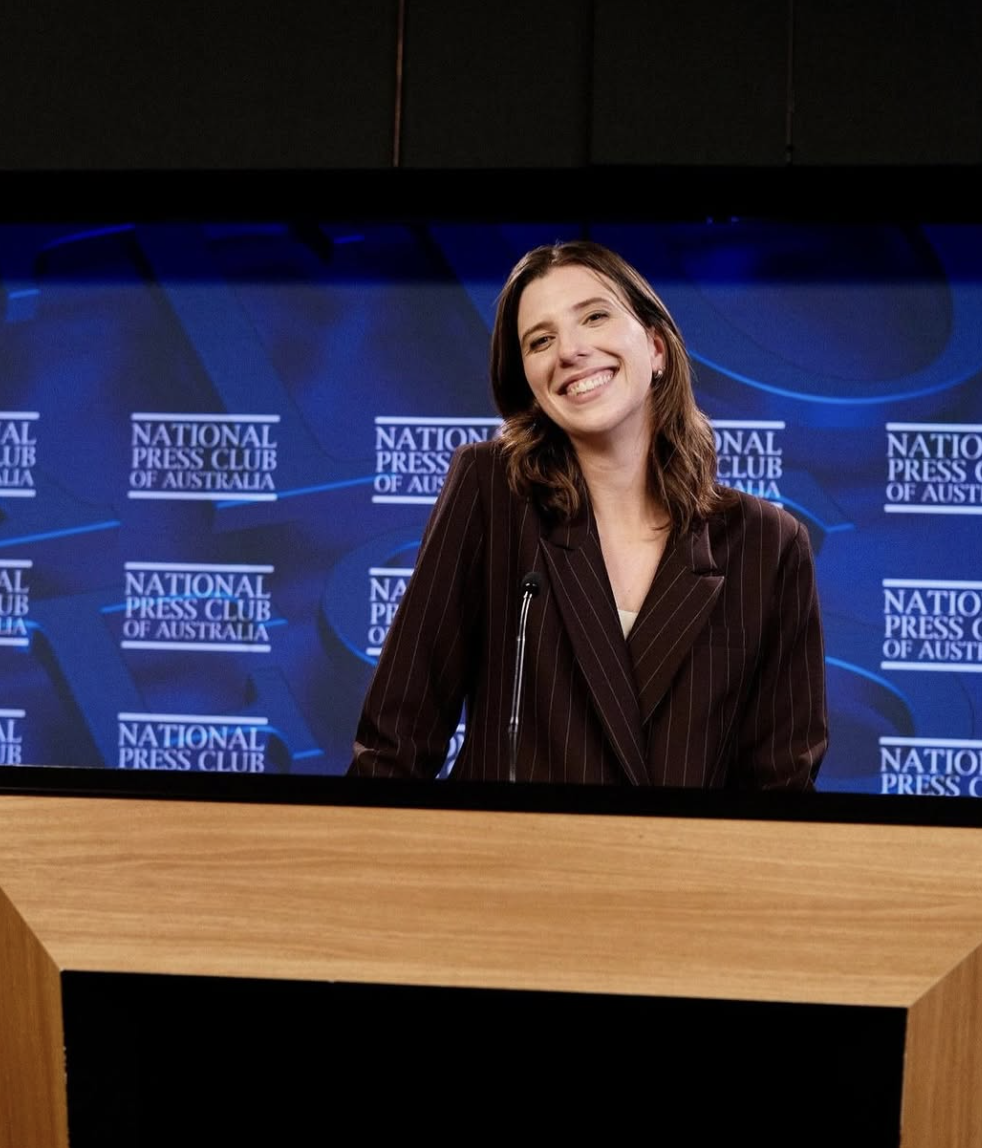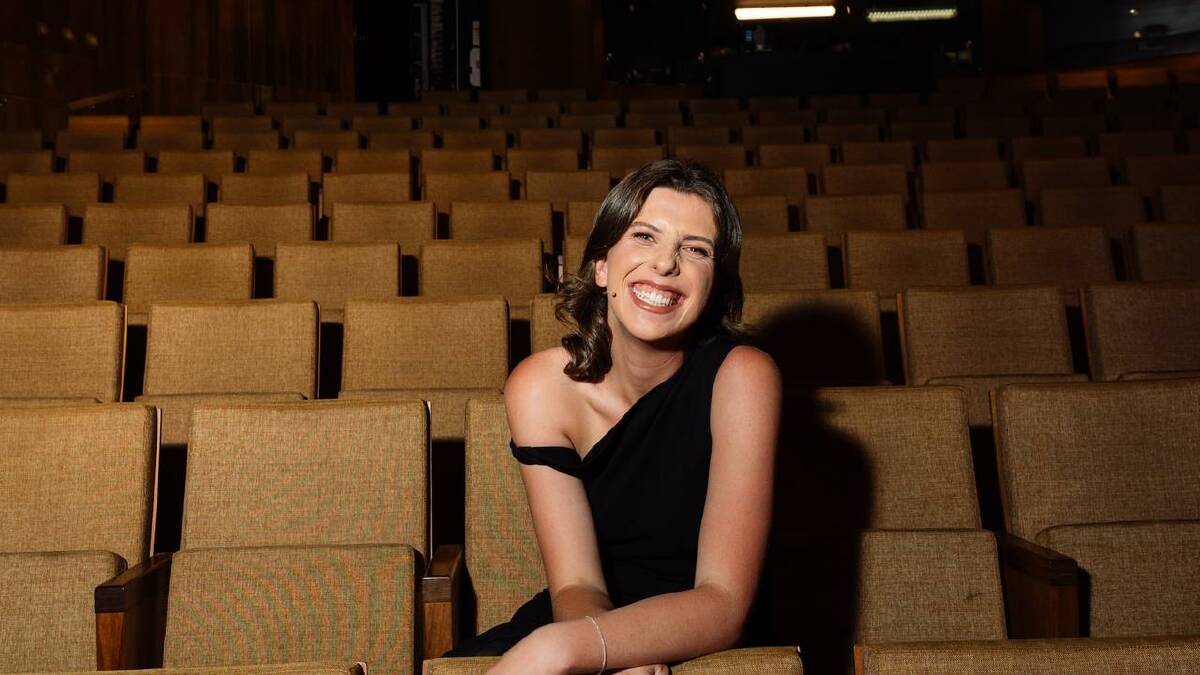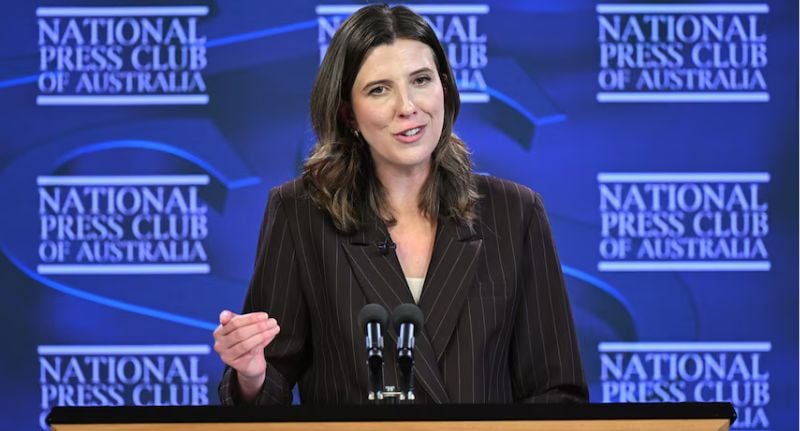In a moment that captured the shifting tides of Australian media, Cheek Media founder Hannah Ferguson took centre stage at the National Press Club, not just to reflect on her digital-first rise, but to challenge the institutions that have long dominated the conversation.
Ferguson, whose political commentary reaches a combined 275,000 followers across her personal and Cheek Media platforms, used the address to call for greater transparency around political content on social media, challenge legacy media narratives, and cement her place as a bold new voice in Australian public life.
“There’s a lot of people who were accepting money and doing authorisations on social media posts, and that did concern me greatly,” she said, in reference to influencer activity during the 2025 federal election.
“When they’re getting paid to do that, I think that needs to be very clear from the outset: at the start and at the end of the video, it needs to be in the caption.”

Hannah Ferguson
The murky business of influence
Ferguson didn’t pull punches when it came to the often-blurry intersection of money, politics and Instagram.
She was especially critical of co-authored posts between politicians and content creators, saying plainly: “For me, we shouldn’t be collaboratively posting with politicians. I think that that is an endorsement.”
While she freely admitted to being partisan, “I overtly ran a campaign against the Coalition,” she said, referencing her infamous “Good morning to everyone except Peter Dutton” T-shirts, Ferguson was adamant that she never took money from political figures, drawing a firm line between advocacy and paid influence.
“What I refuse to do is allow a microscope to be placed on me and my ring light in my bedroom while the billionaire conservative mouthpiece of the western world is allowed to run rampant with derogatory, defamatory and hateful content every day,” she declared.
“This doesn’t just go one way.”
The power play behind the word ‘influencer’
One of Ferguson’s most pointed critiques came with her rejection of the term “influencer” altogether, a label she argued is often wielded to delegitimise young women in media.
“Influencer has been the dirtiest word of this campaign,” she said. “The agenda is clear, to undermine our intelligence, to paint us as untrustworthy, and to conflate us with green juice and a discount code.”
“There is nothing wrong with being an influencer, but the label is intended to cause significant reputational damage. The impact is deeply misogynistic.”
Ferguson positioned herself instead as a commentator, someone using new media tools to reach audiences disengaged from traditional outlets.
And the numbers back her: Cheek Media’s short-form political videos routinely rack up tens of thousands of views, making her one of the most visible progressive voices in the youth media space.

Hannah Ferguson
From the ring light to the Senate
Capping off her address, Ferguson announced she’ll be running as an independent Senate candidate for New South Wales at the next federal election.
“Running a campaign and losing, I think, is a powerful thing to do to show other young women that they can do the same thing and that it’s not embarrassing, it’s actually a triumph that you attempted to challenge a system and an establishment,” she said.
Though she admits it’s “virtually impossible” to win without hundreds of thousands of votes, the move signals a broader ambition to move from commentary into direct political action.
Ferguson’s speech was more than just a post-election debrief, it was a statement of intent. And if her digital audience is anything to go by, the establishment might want to start paying closer attention to who’s behind the ring lights.
